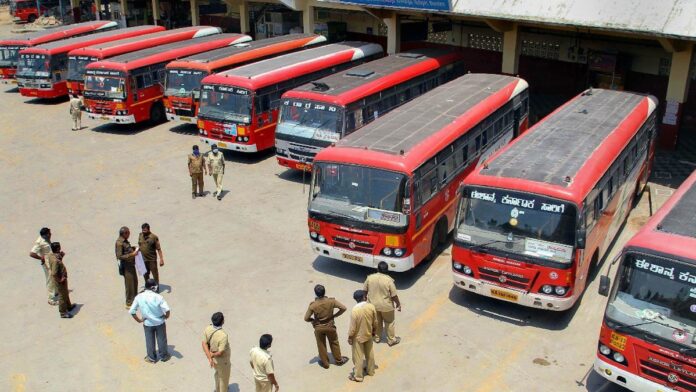Bengaluru, Karnataka — The Karnataka government’s decision to increase Karnataka State Road Transport Corporation (KSRTC) bus fares by 15% has sparked criticism from the opposition BJP, which plans to hold a state-wide protest against the move on Saturday, January 4, 2025.
Opposition Reaction
Leader of Opposition R Ashoka criticized the fare hike, attributing it to financial mismanagement by the Congress-led state government.
- “They have to give more than Rs. 4000 crores to the transport department and have no money. Hence, this was the easy thing to do,” Ashoka stated.
- He accused the government of being a “commission government” and exploiting citizens, especially men, by charging them double fares while offering free rides to women under the Shakti scheme.
- BJP MLA Dheeraj Muniraju also condemned the move, claiming it disproportionately affects rural and urban residents.
Government Justification
Karnataka Minister HK Patil defended the fare hike, citing financial challenges faced by KSRTC due to increased operational costs, rising fuel prices, and salary increments for employees.
- The 15% fare increase, effective January 5, 2025, is expected to generate an additional Rs. 74.85 crore per month and approximately Rs. 784 crore annually.
- Minister Patil explained that the hike was necessary to partially offset the financial burden of the Shakti scheme, which provides free bus travel for women and costs the government Rs. 417 crore monthly.
Background
- This is the first fare hike for KSRTC in a decade.
- The last fare increase in other transport corporations occurred five years ago when diesel prices were significantly lower, at around Rs. 68 per liter.
- Current operational challenges include rising diesel prices, workforce salary increments, and other economic pressures.
Public Impact
- The increased fares will apply to KSRTC buses across the state.
- The government hopes the additional revenue will help KSRTC address its financial deficit and maintain its services.
Upcoming Protests
The BJP plans a state-wide protest to challenge the fare hike, arguing that the government’s financial policies burden ordinary citizens while selectively benefiting a segment of the population through the Shakti scheme.
As the fare increase becomes effective on January 5, the government faces mounting pressure to address public concerns over its broader fiscal management and transport policies.


